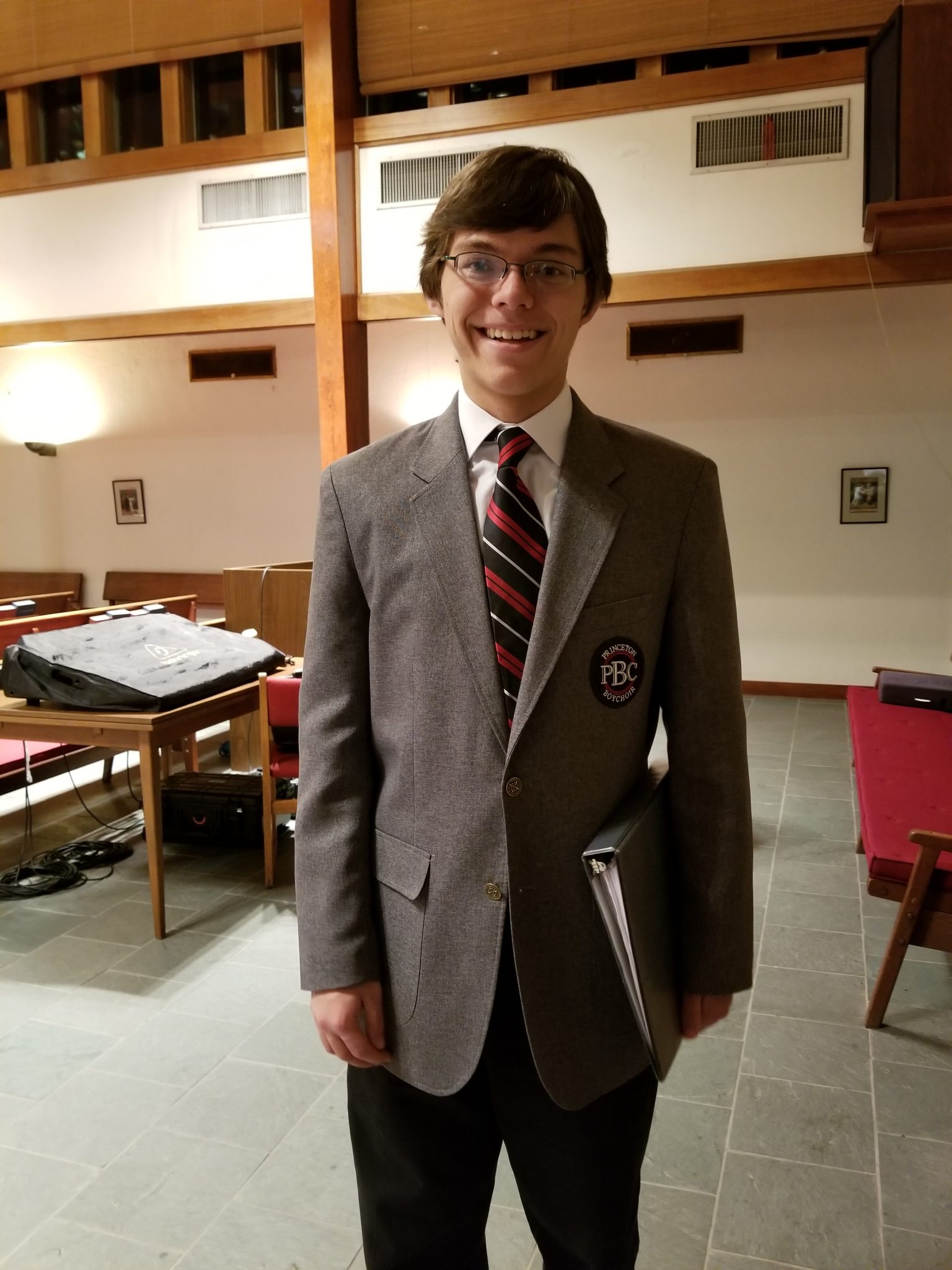The Trail of Tears is a dark chapter of American history and Barron Brothers, through his original music composition, is hoping to spark conversation on the tragic event.
The junior at Hopewell Valley Central High School (HVCHS) worked to achieve this with a written original music composition that earned him a finalist position in the NJ Music Educators Association Young Composers Competition Contest.
“When I got the email that I was one of the finalists, I was in my bed sleeping kind of late and saw the email on my phone. I definitely was awake after reading the email and it was certainly unexpected that I was a finalist,” Brothers said.
Even though Brothers did not win the grand finalist title on Jan. 30, he hopes the written piece and the performance of it brings the Trail of Tears to the forefront of people’s minds.
“This piece is really important to me. The Trail of Tears is not talked about as much as it really should be,” he said. “I hoped that when I was composing this piece that this would really inspire people and hopefully get a conversation going on what really happened.”
According to the National Park Service and U.S. State Department, the Trail of Tears was a result of Congress passing the Indian Removal Act in 1830 and treaties. The act required the various Native American tribes (Choctaws, Cherokee, Muscogee Creeks, Seminoles, and Chickasaws) in the southeastern part of the United States to give up their own land in exchange for federal territory west of the Mississippi River.
The Trail of Tears specifically relates to the removal of the Cherokee Nation. More than 4,000 Cherokee deaths are estimated to have occurred during the forced relocation by federal troops and Georgia state militia. The loss of life in the camps and along the trail were from cholera, smallpox, influenza, pneumonia, starvation, exposure and broken hearts, according to a U.S. Fish and Wildlife Service 2007 Historical and Interpretation study final report.
Brothers has Choctaw heritage from his paternal side of the family that reaches all the way back to his great-great-great grandfather. His heritage was the first inspiration for the piece that would evolved into current tribute to the Native Americans during the Trail of Tears. The piece took three weeks to pull together.
“The piece starts out as a solo melody, but then as the piece progresses on the melodies start getting more complex and eventually there is a quicker section that has more movement to it,” he said. “That increased movement in the piece I wanted that to represent the physical walking that the Native Americans had to endure during the Trail of Tears.”
Brothers added that he wanted to try to represent the experience from the Native American perspective rather than a Western perspective.
“What I really wanted to communicate is how they were feeling when they walked the Trail of Tears. Another aspect that I incorporated was actually some shouting in a selected selection. That I wanted to represent was the anger the Native Americans had while walking the Trail of Tears,” he said. “Also, the lyrics I chose are from a Choctaw spiritual called Sun Tracks. In doing some research in Choctaw spirituality the sun represents in general hope and life.”
Brothers also wanted to incorporate that Native Americans felt they were walking toward the hope that things would improve.
“Unfortunately, they did not,” he said. “What I want people to do after listening to this piece is talk to each other. I want this piece to invoke conversation, so that the tragic event of the Trail of Tears does not go as unspoken, and so a genocidal event like that does not happen again. I want to help people recognize that stuff like this can happen on our soil and not just in some foreign country and we need to actively prevent it.”
HVCHS music teacher and Band Director David Schwartzer added he thought Brothers’s piece was not only fantastic, but a testament to his talent and skill.
“He is really talented kid. I guided him very little. Barron has been composing from a very long time, so when he came to me with his draft he was pretty far along in the process,” Schwartzer said. “When looking at Barron’s composition there is a different degree of technical skills involved. To write a choral piece, a band piece or piano piece and put it down on paper requires a level of training that Barron has and [he has] a strong fundamental knowledge about how music works and its structure.”
Schwartzer points to that piece’s connection to an emotional place, where people can relate or feel emotion.
“He had a really strong connection and meaning he was bringing to the piece and if you are able to listen to it and hear the piece I think you can feel that. I think that is the extra sauce that makes this special,” he said. “He has always had a knack for his chord choice selection and developing chord progressions that draw the listener in. Aside from that he takes you on journey, where there is a set and climax and leading us through the piece, so our emotions push and pull a little bit.”

